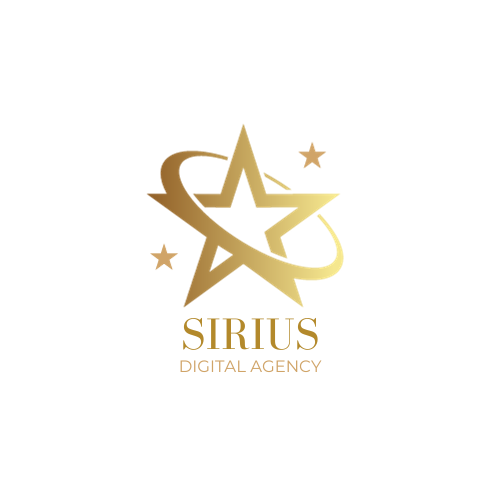Managing inventory can be a complex task for small businesses, but using the right software can simplify the process considerably. By implementing effective inventory tracking solutions, you can gain real-time insights, streamline operations, and make informed decisions about stock levels. With a variety of options available, it’s important to understand which features suit your business needs best. Let’s explore the top seven inventory tracking software solutions that can help you optimize your inventory management.
Key Takeaways

- Sortly offers an intuitive interface, ideal for small businesses needing easy navigation and customizable fields for inventory management.
- Cin7 provides end-to-end inventory management with excellent collaboration features, suitable for businesses requiring advanced capabilities.
- inFlow Inventory includes real-time tracking and a B2B portal, making it effective for businesses of varying sizes, from small to enterprise.
- BlueTally is known for its robust integrations and responsive customer support, catering specifically to small to medium-sized businesses.
- Veeqo is completely free, making it an appealing choice for budget-conscious small business owners looking for basic inventory management tools.
Overview of Inventory Management Software

Inventory management software serves as a crucial tool for small businesses, enabling you to effectively monitor and control your stock levels.
This software helps you track inventory levels, orders, sales, and deliveries in real time, enhancing your operational efficiency. It automates tasks like purchase order creation and stock level forecasting, which prevents overstocking and stockouts.
Furthermore, many systems integrate with accounting software and sales channels, ensuring seamless data synchronization across platforms.
Key features include barcode scanning, multi-location management, and customizable reporting, which facilitate better decision-making.
Whether you need inventory tracking software for small business, warehouse management software for small business, or real estate inventory management software, these solutions streamline operations and support growth in your inventory management practices.
Benefits of Using Inventory Tracking Software
![]()
When small businesses implement inventory tracking software, they gain a strong ally in managing their stock effectively. This software automates stock monitoring, helping you avoid overstocking and stockouts, which saves costs and optimizes your capital use. You’ll benefit from real-time data insights that improve decision-making, increasing operational efficiency. Features like barcode scanning speed up inventory counts and reduce human error. Plus, the software often integrates seamlessly with your existing systems, maintaining data accuracy across functions. In the end, using inventory tracking software can boost customer service by guaranteeing timely product availability, nurturing higher satisfaction and loyalty.
| Benefit | Explanation |
|---|---|
| Cost Savings | Prevents overstocking and stockouts |
| Improved Efficiency | Provides real-time data insights |
| Enhanced Customer Service | Ensures timely product availability |
Key Features to Look For

When choosing inventory tracking software, you should prioritize real-time inventory tracking to maintain accurate counts and avoid stockouts.
Customization and scalability options are likewise crucial, as they allow the software to adapt to your unique business needs and grow with you.
Real-Time Inventory Tracking
Effective real-time inventory tracking is vital for small businesses seeking to optimize their operations and maintain adequate stock levels. Look for software that offers automated low stock alerts, allowing you to replenish items before they run out. A mobile app with offline functionality is fundamental, letting you manage inventory anytime, anywhere. Advanced features like barcode and QR code scanning can considerably speed up inventory counts and improve accuracy during stock audits. Furthermore, thorough reporting tools provide valuable insights into inventory levels and sales trends. Finally, verify the system seamlessly integrates with your existing accounting and sales platforms to minimize manual entry errors.
| Key Features | Benefits |
|---|---|
| Automated Low Stock Alerts | Prevent stockouts |
| Mobile App | Manage inventory anytime, anywhere |
| Barcode/QR Code Scanning | Speed up inventory counts |
| Thorough Reporting | Informed decision-making |
Customization and Scalability Options
Customization and scalability options are vital features to take into account when choosing inventory tracking software for your small business.
Look for software that allows you to customize fields and workflows, tailoring inventory management to your specific needs for improved efficiency.
It’s also important that the platform supports scalability, enabling you to adjust as your operations grow—whether that means adding users, locations, or inventory items—without sacrificing performance.
Furthermore, choose software that integrates seamlessly with your existing systems, like accounting and e-commerce platforms, to streamline operations.
Advanced reporting features should be customizable to provide insights relevant to your industry.
Finally, opt for solutions offering various pricing tiers, allowing you to start with basic functionalities and upgrade as your needs evolve.
Factors to Consider When Choosing Software
![]()
How do you determine the best inventory tracking software for your small business? Start by prioritizing thorough reporting and analytics features, as these tools provide valuable insights into stock levels and trends, helping you make informed decisions.
Next, consider customization options to guarantee the software meets your unique business needs and can adapt as your operations change. Evaluate scalability based on your business size; the software should support growth and handle increased inventory complexity over time.
Don’t overlook customer support availability, as timely assistance is vital for resolving issues efficiently. Finally, assess integration capabilities with existing systems, like accounting software or e-commerce platforms, to streamline operations and improve overall efficiency, making your processes smoother and more effective.
Top 7 Inventory Tracking Software Solutions

When it relates to selecting the right inventory tracking software for your small business, comprehending the key features and pricing plans is essential.
Each option on the market offers unique functionalities customized to different needs, so you’ll want to compare them closely.
Let’s explore the top seven solutions that can help streamline your inventory management efficiently.
Key Features Overview
Inventory tracking software plays a crucial role in helping small businesses manage their stock efficiently and effectively. Solutions like Sortly offer an intuitive interface with multiple photos and custom fields for easy organization.
Cin7 provides end-to-end inventory management, allowing visibility from purchase orders to fulfillment as it supports multi-location management with automated notifications.
If you’re in B2B or wholesale, inFlow Inventory features a barcode scanning system and a B2B portal that streamlines order management.
BlueTally stands out with strong integrations, allowing for assignable assets and maintenance logs.
For manufacturers, Katana automates stock updates and prioritizes orders, ensuring smooth production processes.
Each of these tools presents unique features customized to specific business needs, enhancing overall inventory management.
Pricing and Plans
Choosing the right inventory tracking software involves comprehending the various pricing plans available from different providers.
Sortly offers a free plan with basic features, whereas premium options start at $29/month.
BlueTally likewise provides a free plan for up to 50 assets, with paid plans beginning at $59/month.
InFlow Inventory has tiered pricing starting from $89/month, and Cin7’s standard plan is set at $295/month.
Katana’s plans commence at $179/month, accommodating unlimited users.
Each software has unique features and capabilities, so it’s crucial to assess your specific needs against these pricing structures.
Consider factors like trial periods, scalability, and additional costs for advanced features when making your decision.
Pricing Structure of Selected Software

Comprehending the pricing structure of various inventory tracking software options is crucial for small businesses seeking cost-effective solutions.
For instance, Sortly offers a free plan with basic features, during its paid plans start at $29/month for the Advanced plan, reaching custom pricing for the Enterprise plan.
InFlow Inventory ranges from $89/month for the Entrepreneur plan to $1,055/month for the Enterprise plan, catering to diverse business sizes.
Cin7 starts at $295/month for the Standard plan and can hit $999/month for the Advanced plan, with custom pricing for the Omni plan.
BlueTally provides a free plan and paid options beginning at $59/month, going up to $499/month for the Enterprise plan.
Finally, Veeqo is entirely free, presenting no hidden costs.
Pros and Cons of Each Software Solution

When evaluating different inventory tracking software solutions, it’s essential to weigh the pros and cons of each option to determine which best fits your business needs.
BlueTally stands out with robust integrations and responsive support, making it a strong candidate.
inFlow Inventory offers real-time tracking at an affordable price, but users may face server issues and a learning curve.
Cin7 provides excellent collaboration features, but its complexity may overwhelm simpler operations.
Sortly is efficient and intuitive, though it has limitations with barcode scanning, which can hinder larger businesses.
Finally, Veeqo is free to use, appealing for budget-conscious owners, yet lacks specified drawbacks, which might be a concern when evaluating its overall effectiveness.
Frequently Asked Questions

What Is the Best Inventory Tracking Software for Small Business?
When you’re looking for the best inventory tracking software for your business, consider your specific needs.
Sortly offers an intuitive interface that simplifies inventory management, whereas Veeqo provides free real-time syncing across multiple sales channels.
If you’re in B2B or wholesale, inFlow Inventory with its barcode scanning features may suit you well.
For mobile tracking, Finale Inventory is ideal, and BlueTally’s integrations can improve your asset management efficiency.
Evaluate these options carefully.
Which Inventory Method Is Best for Small Business?
Choosing the right inventory method for your small business depends on your specific needs.
If you manage perishable goods, the First-In, First-Out (FIFO) method is often ideal since it helps minimize spoilage.
On the other hand, Last-In, First-Out (LIFO) can be beneficial in times of inflation, aligning current costs with revenues.
Instead, the Weighted Average Cost method simplifies accounting by averaging costs.
Assess your inventory type, financial strategy, and industry regulations to determine the best fit.
Is Zoho Inventory Really Free?
Yes, Zoho Inventory does offer a free plan. This plan allows you to manage up to 20 online orders per month, which is ideal for small businesses with limited inventory requirements.
You’ll get basic features like inventory tracking, order management, and integration with other Zoho applications.
Nevertheless, keep in mind that advanced functionalities are only available in the paid tiers, which start at competitive rates for those needing more extensive capabilities.
Can I Use Quickbooks to Manage Inventory?
Yes, you can use QuickBooks to manage inventory effectively.
The software allows you to track stock levels, manage purchase orders, and generate detailed inventory reports. You can automate reorder points, receive alerts for low stock, and calculate true landed costs and cost of goods sold (COGS).
With support for multiple locations and integration with various sales channels, QuickBooks improves your inventory management, providing accurate financial insights and preventing stockouts.
Conclusion

In summary, selecting the right inventory tracking software can greatly improve your small business operations. With options like Sortly, Cin7, inFlow Inventory, BlueTally, Katana, and Veeqo, you can find a solution that fits your needs and budget. These tools not just streamline inventory management but additionally enhance decision-making and customer satisfaction. By considering key features and pricing structures, you can make an informed choice that supports your business’s growth and efficiency.
Image Via Envato
This article, “7 Best Inventory Tracking Software for Small Businesses” was first published on Small Business Trends



